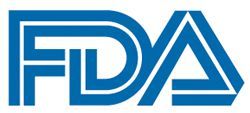Article
FDA Removes Clinical Hold on FLAMINGO-01 Trial in High-Risk HER2/Neu-Positive Breast Cancer
Author(s):
The FDA has removed the clinical hold on the phase 3 FLAMINGO-01 trial allowing the study to continue elevating the activity and safety of the HER2/neu-peptide GLSI-100 in patients with HER2/neu-positive breast cancer who are at high risk for disease recurrence or have residual disease following completion of neoadjuvant and adjuvant trastuzumab-based therapy, according to an announcement from the drug developer.

The FDA has removed the clinical hold on the phase 3 FLAMINGO-01 trial (NCT05232916) allowing the study to continue elevating the activity and safety of the HER2/neu-peptide GLSI-100 in patients with HER2/neu-positive breast cancer who are at high risk for disease recurrence or have residual disease following completion of neoadjuvant and adjuvant trastuzumab (Herceptin)-based therapy, according to an announcement from the drug developer, Greenwich Life Sciences.1
The phase 3 trial was put on hold by the FDA because of the manufacturing and pharmacy process. The company, through discussions with the FDA and testing of the agent in the pharmacy process, has sufficiently addressed the clinical hold issues and agreed to further testing of the agent in the pharmacy process.
GLSI-100 consists of the combination of GP2, a biologic 9 amino acid peptide of the HER2/neu protein and granulocyte-macrophage colony stimulating factor (GM-CSF), producing an immune response targeting HER2/neu-expressing cancers.2
Previously, results from a prespecified subgroup analysis of a randomized phase 2b trial showed that after a median follow-up of 5 years, no recurrences occurred in the HER2/neu-positive adjuvant setting if the HLA-A*02–positive patient received the 6 primary intradermal GP2 injections over the first 6 months of treatment (P= .0338).3
The prospective, randomized, double-blind, placebo-controlled, multicenter FLAMINGO-01 trial is expected to enroll approximately 598 patients at least 18 years of age with a histologically confirmed diagnosis of HER2/neu-positive primary breast cancer.4
Patients must have stage I, II, or III disease at presentation with pathologic evidence of residual invasive carcinoma in the breast or axillary lymph nodes at surgery following completion of neoadjuvant therapy, or stage III disease at presentation with pathologic complete response at surgery following completion of neoadjuvant therapy.
Additional eligibility criteria include HLA-A*02 positivity, completion of neoadjuvant and adjuvant trastuzumab-based standard therapy, no clinical evidence of residual or persistent breast cancer, an ECOG performance status of between 0 and 2, adequate organ function, and a negative pregnancy test or evidence of postmenopausal status. Patients of childbearing potential should be willing to use a form of highly effective contraception.
The primary end point is invasive breast cancer–free survival, with secondary end points of invasive disease-free survival, distant disease-free survival, overall survival, and quality of life.
Patients will be randomized to 1 of 3 arms. HLA-A*02–positive patients will be randomized to 6 intradermal injections of GLSI-100 or placebo consisting of a 0.9% solution of normal saline every month for the first 6 months followed by 5 booster intradermal injections every 6 months for the next 2.5 years. In the third open-label arm, HLA-A*02–negative patients will receive GLSI-100 immunotherapy in the same schedule.
The estimated study completion date is December 2026.
The company has begun site initiation visits and will provide additional updates on the progress of FLAMINGO-01 in the future.
References
- Greenwich LifeSciences announces removal of clinical hold permitting phase III clinical trial to proceed. News release. Greenwich LifeSciences. July 12, 2022. Accessed July 12, 2022. https://bit.ly/3IB2Y9i
- Patel S, Thompson J, Patel M, et al. A randomized, multicenter, placebo-controlled, phase III study to evaluate the efficacy and safety of HER2/neu peptide GLSI-100 (GP2 + GM-CSF) in patients with residual disease or high-risk PCR after both neo-adjuvant and postoperative adjuvant anti-HER2 therapy, Flamingo-01. J Clin Oncol. 2022;40(suppl 16): TPS1110. doi:10.1200/JCO.2022.40.16_suppl.TPS1110
- Greenwich LifeSciences provides update on upcoming phase III clinical trial, FLAMINGO-01. News release. Greenwich LifeSciences, Inc.; February 1, 2022. Accessed July 12, 2022. https://bit.ly/3GohiPE
- Phase 3 study to evaluate the efficacy and safety of HER2/neu peptide GLSI-100 (GP2 + GM-CSF) in HER2/neu positive subjects. (FLAMINGO-01). ClinicalTrials.gov. Updated June 30, 2022. Accessed July 12, 2022. https://www.clinicaltrials.gov/ct2/show/NCT05232916









